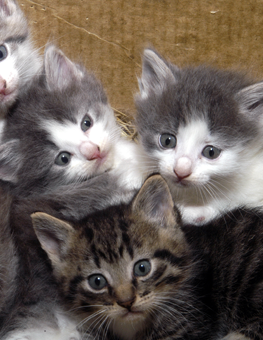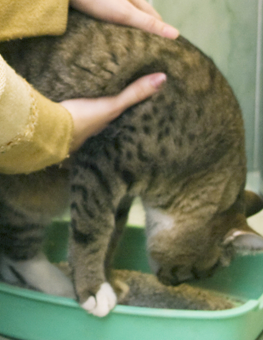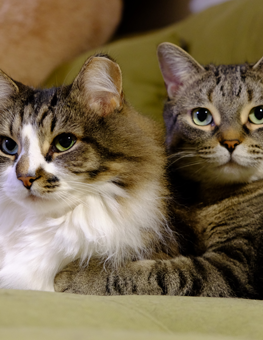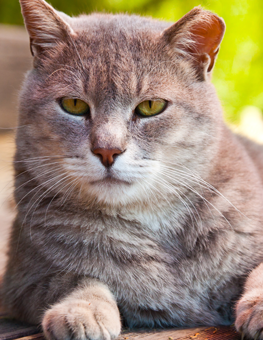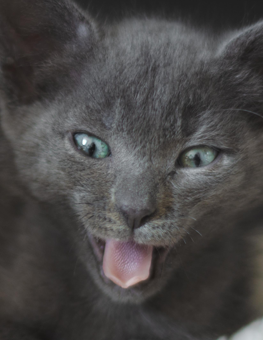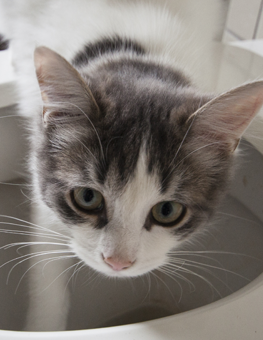When Your Cat Won’t Use the Litter Box
Paying attention to a few litter box specifics can eliminate a common pet peeve of cat owners.
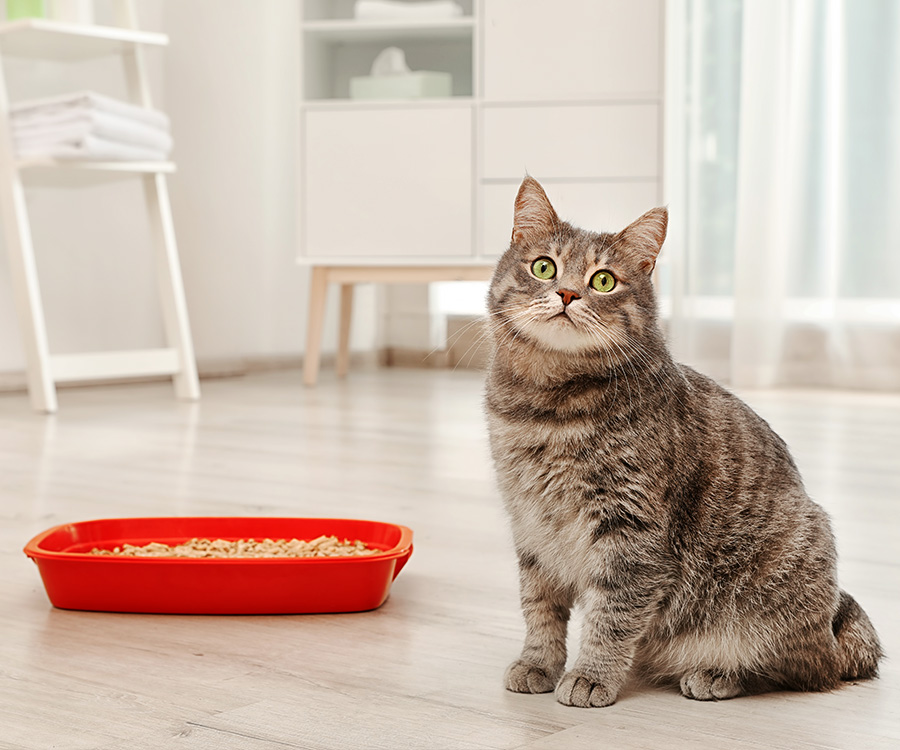
Cats prefer a quiet, secluded spot for their toileting needs.
If you were to poll any group of cat lovers on which feline behavior problem they find to be the most troublesome, chances are, most of them would say litter box issues. It’s messy, it’s smelly, and it’s just unsanitary to have your cats urinating all over your house, and it’s no wonder that people find accidents outside of the litter box to be a dealbreaker when it comes to their feline friends.
Did you know that, contrary to popular belief, kittens don’t have to be trained to use the litter box? Our domestic housecats today share much of their DNA with the desert-dwelling cats of ancient Egypt. And what is there a lot of in the desert? Sand. Because cats haven’t changed much over the centuries, they still share that ancient instinct of burying their excrement in the sand. Your modern litter box is what remains from the world’s largest sandbox that our cats used to use! Believe it or not, clay kitty litter wasn’t invented until 1947, so even cats as recent as 75 years ago were doing much of their toileting outside in the dirt.
Often, cat owners have tried everything when their cat will not use the litter box – or at least felt like they have. Even felines with impeccable toileting habits may, for no obvious reason, stop using the litter box. A number of reasons can spark this unwelcome behavior, including:
- Pain or illness. If a cat is in pain when he tries to urinate, he will quickly associate that pain with the litter box and begin hunting for an alternate solution. Even if you think your cat won’t use the litter box for a behavioral reason, you should always start with a trip to the vet, no matter what.
- Cleanliness. You should be scooping your cat’s litter box once a day, minimum! Just like humans, cats are fastidious about cleanliness and will get finicky if the litter box is not up to their standards. You wouldn’t want to use a dirty toilet, so don’t expect your cat to.
- Location. Cats prefer quiet, secluded spots for toileting, away from the main flow of household traffic. This isn’t to say that you should hide your litter box in a dark, lonely corner of your basement, either. Give your cat privacy without totally isolating them. They also like to feel secure and prefer a litter box from which they can easily escape if there is a conflict with another cat or something scary happened while they were inside.
- Design. Some cats prefer litter boxes with covers. Others prefer an open design. Some cats find automatic or self-cleaning litter boxes to be aversive.
- Size. Your litter box should be one and a half times the length of your cat. They should be able to easily turn in a full circle inside without touching any walls. Many commercially produced litter boxes are just too small! If your cat won’t use the litter box, try a larger box.
- Type of litter. Some cats are very particular about the granularity of the litter. Is the litter fine and sandy or does it have a more gravel-like consistency? Has the product scent changed? Is it clay or corn? Pellets or crystals?
- Stress. Has a new cat moved to the neighborhood? Is there a new baby in the house? Cats are emotionally sensitive to their environment and any change can add stress. Spend some quality time with him and try to normalize his routine.
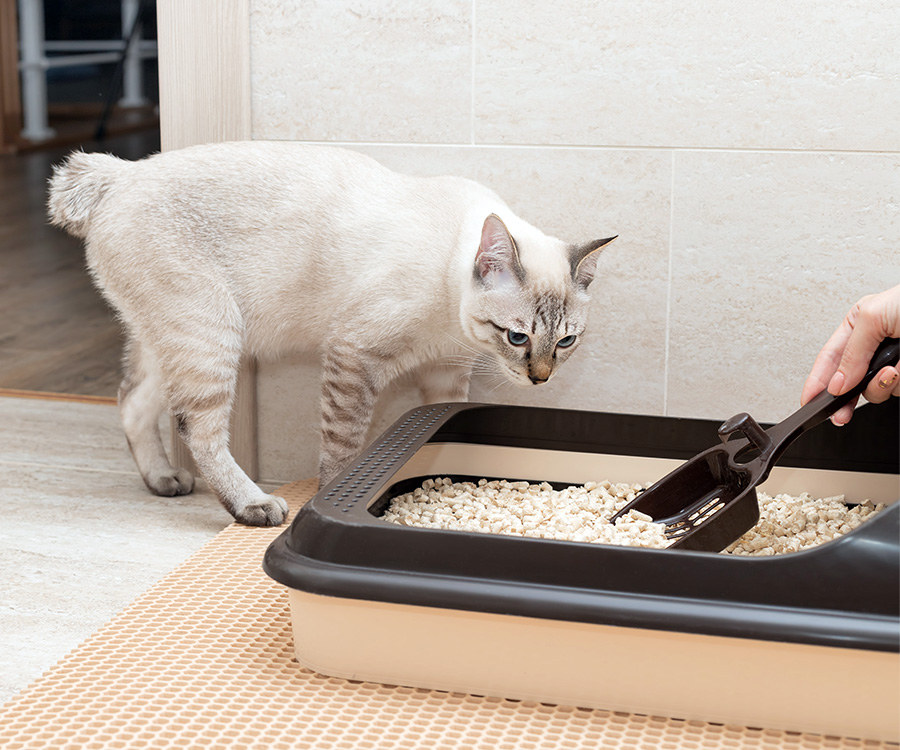
Some cats are very particular about the granularity and scent of litter.
You may have heard or seen the suggestion to confine your cat in a small space such as a bathroom or dog crate and “re-train” him to use the litter box. Unfortunately, this is rarely effective. Your cat probably did not simply forget that he was supposed to use his box.
As discussed earlier, litter box usage is innate and instinctive. If your cat won’t use the litter box, there is a reason. Simply confining him and not giving him another choice doesn’t address the underlying reason behind his behavior. Your cat will likely continue to have litter box accidents as soon as you let him back out. Confinement can also cause your cat unnecessary stress and frustration and lead to other problems.
If you think you’ve tried everything and your cat will not use the litter box, consider speaking with a certified cat behavior consultant or animal behaviorist for further assistance. Ask your vet if they have any recommendations!



